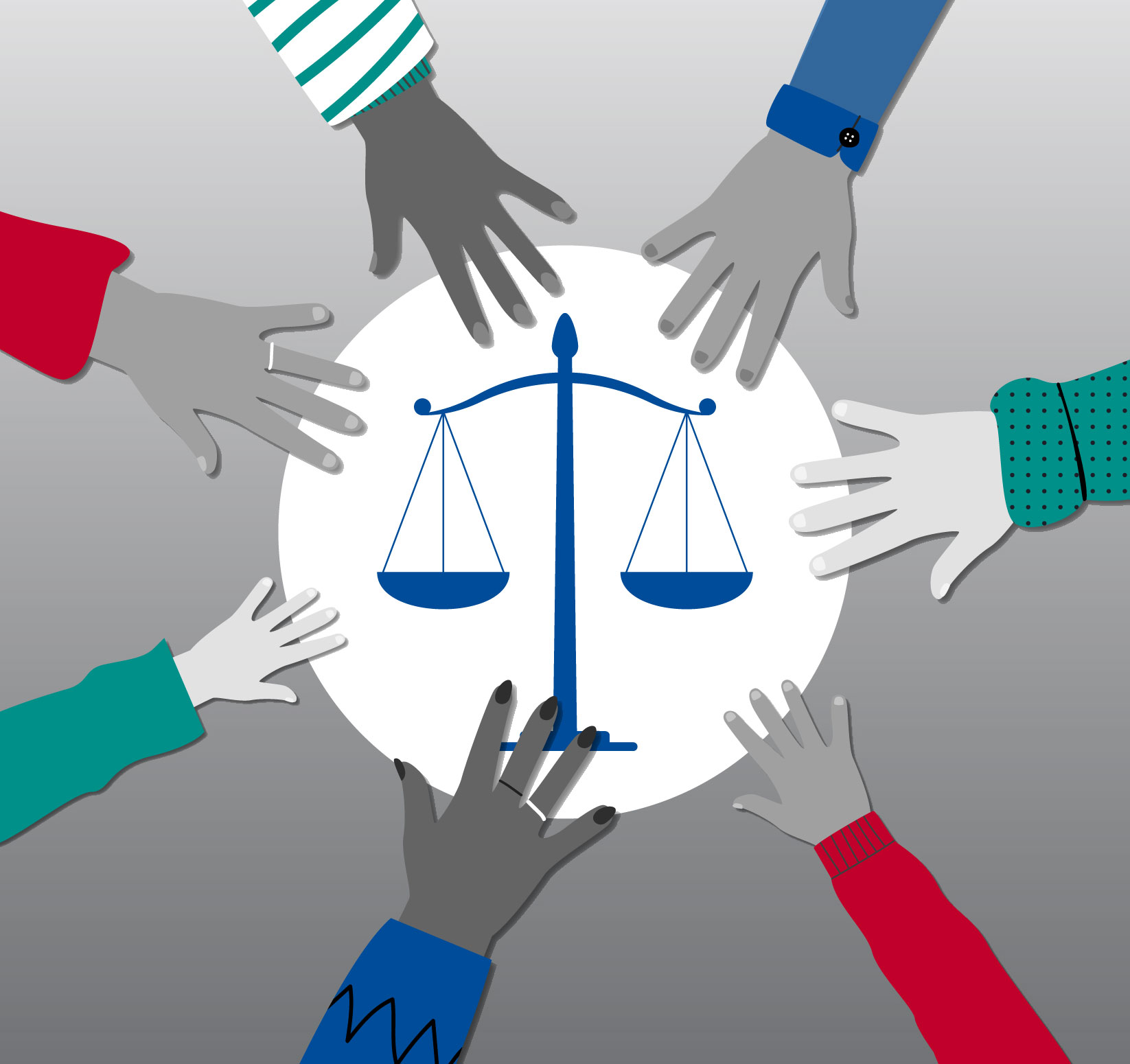The ICJ has published today a set of training materials on access to justice for migrants that should serve as a support and background information for judges and lawyers when taking decisions on or defending the rights of migrants and refugees.
The materials cover fair asylum procedures and effective remedy, access to justice in detention, access to justice for economic, social and cultural rights, access to justice in the protection of migrants’ right to family life and access to justice for migrant children.
The FAIR PLUS project (Fostering Access to Immigrant’s Rights – Practical training for Lawyers and jUdgeS) was implemented by the ICJ-EI and national partners (Forum for Human Rights in the Czech Republic, Greek Council for Refugees, Immigrant Council of Ireland and Scuola Superiore de Sant’Anna in Italy) in 2018-2021.
Migrants, including refugees, are amongst the groups most vulnerable to violations of their fundamental rights protection. They often face multiple vulnerabilities as they may also be victims of torture or trafficking, single parents, LGBTI, have a disability or be members of ethnic or religious minorities. Violations of migrants’ rights in EU countries are often attributable to judicial decision-making, or can be prevented by effective judicial review. In order to address this, the overall goal of this project is to contribute to better judicial protection of the fundamental rights of migrants across the EU. Deficiencies in some EU Member States that were identified in access to justice for migrants have included unlawful detention of migrants, in unsuitable premises and conditions without access to procedural guarantees and effective remedy, lack of access to information about rights,limited access to free legal aid owing to restrictive qualifying criteria or a lack of information on legal aid.
The drafting of the training materials took place simultaneously to a number of national and transnational trainings and workshops for European lawyers and judges, the materials inspired the content some of the trainings. The ICJ-EI especially thanks for expert input to the training modules by the project partners and experts including Thomas Straub, referendaire at the European Court for Human Rights, Kateřina Šimáčková, Constitutional Court judge in the Czech Republic and Hilkka Becker, the Chairperson of the International Protection Appeals Tribunal in Ireland.
The training materials should allow judges and lawyers to have easily accessible the updated set of international legal standards on access to justice for migrants. These have also been translated into three other languages: Czech, Greek and Italian, to allow for the best access to the international standards by professionals in these countries.
You can download the materials here:
- In English
- Module 0-Access to Justice
- Module 1-Fair Asylum Procedures and Effective Remedy
- Module 2-Access to Justice for Migrants in Detention
- Module 3-Access to justice for Economic, Social and Cultural Rights
- Module 4-Access to Justice in the Protection of Migrant’s Rights to Family Life
- Module 5-Access to Justice for Migrant Children
- In Czech
- Module 0-Přístup ke spravedlnosti
- Module 1-Spravedlivé azylové řízení a účinné prostředky nápravy
- Module 2-Přístup ke spravedlnosti pro migranty v zajištění
- Module 3-Přístup ke spravedlnosti z hlediska hospodářských, sociálních a kulturních práv
- Module 4-Přístup ke spravedlnosti při ochraně práv migrantů na rodinný život
- Module 5-Přístup ke spravedlnosti pro migrující děti
- In Greek
- Module 0-Πρόσβαση στη δικαιοσύνη
- Module 1-Δίκαιες διαδικασίες ασύλου και αποτελεσματική προσφυγή
- Module 2-Πρόσβαση στη δικαιοσύνη για τους
- Module 3-Πρόσβαση στη δικαιοσύνη για οικονομικά
- Module 4-Πρόσβαση των μεταναστών στη δικαιοσύνη σχετικά
- Module 5-Πρόσβαση στη Δικαιοσύνη για τα παιδία
- In Italian
- Module 0-Accesso alla giustizia
- Module 1-Procedure eque di asilo
- Module 2-Accesso alla giustizia per i migranti in stato di detenzione
- Module 3-Accesso alla giustizia per la tutela dei diritti economici, sociali e culturali
- Module 4-Accesso alla giustizia sulla protezione del diritto alla vita privata e familiare
- Module 5-Accesso alla giustizia per i bambini migranti

